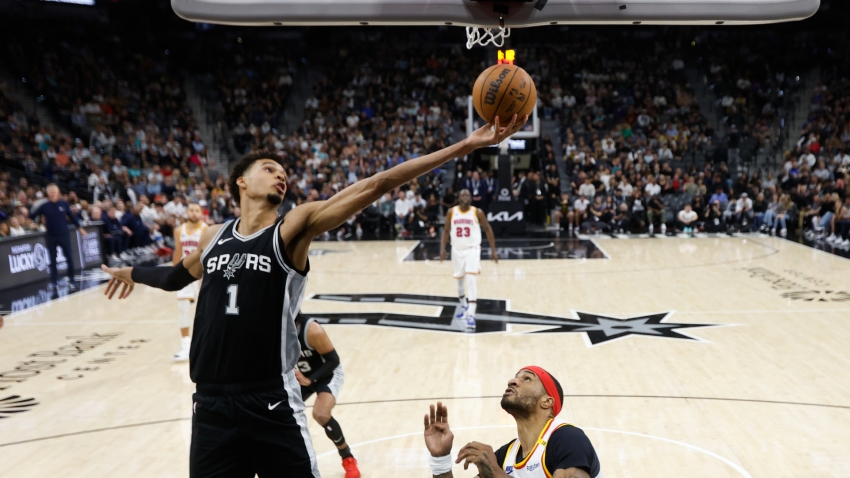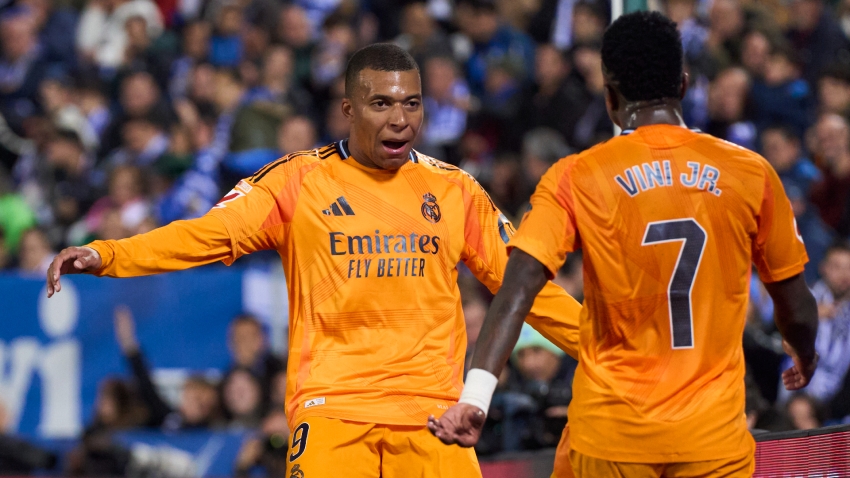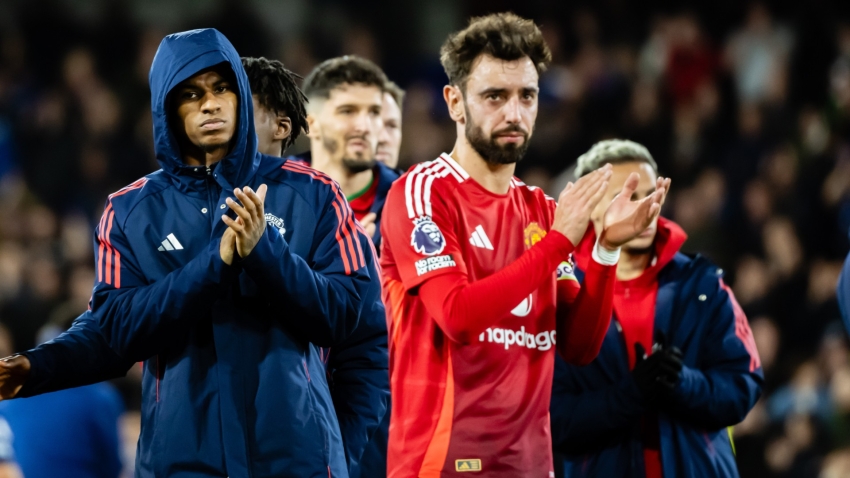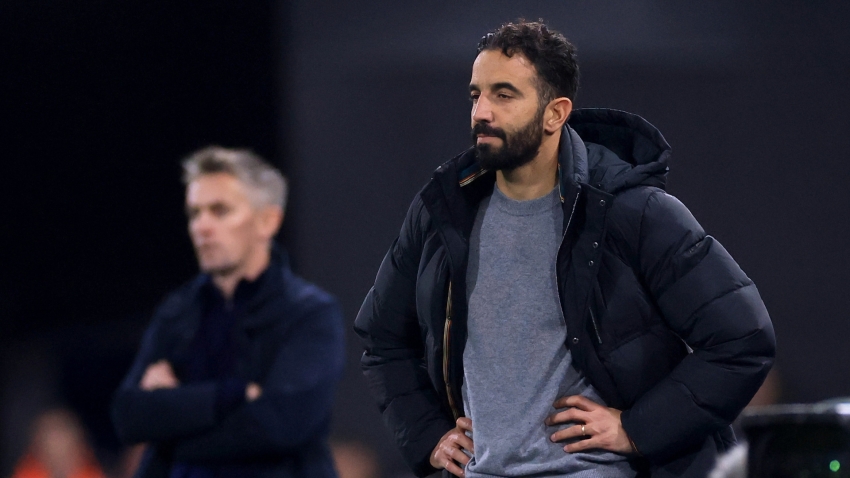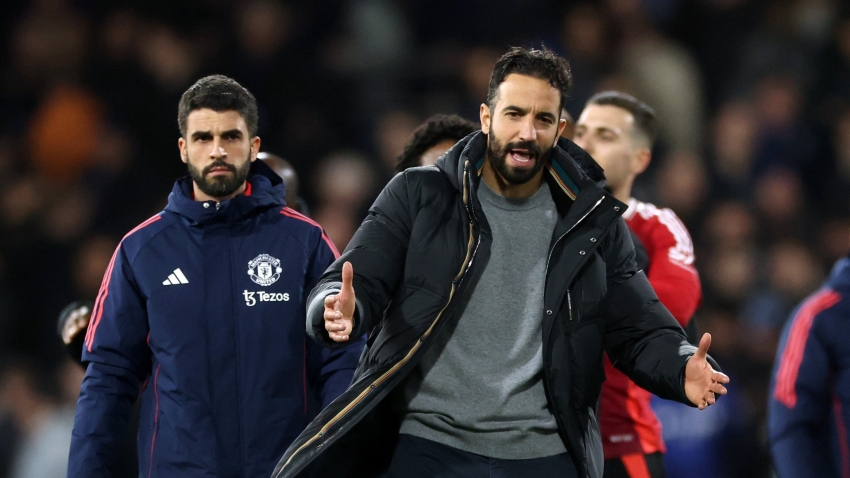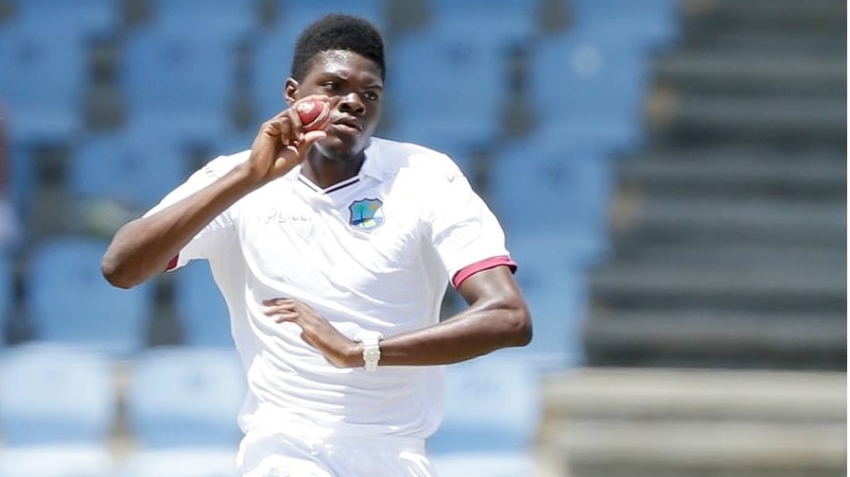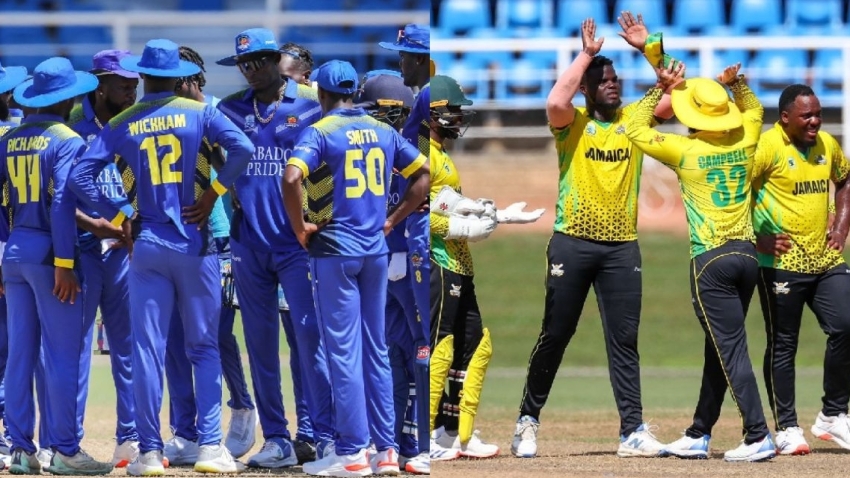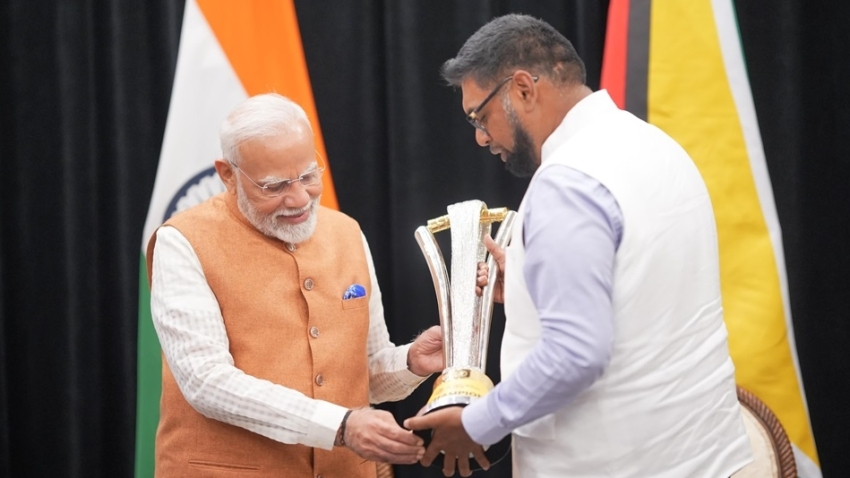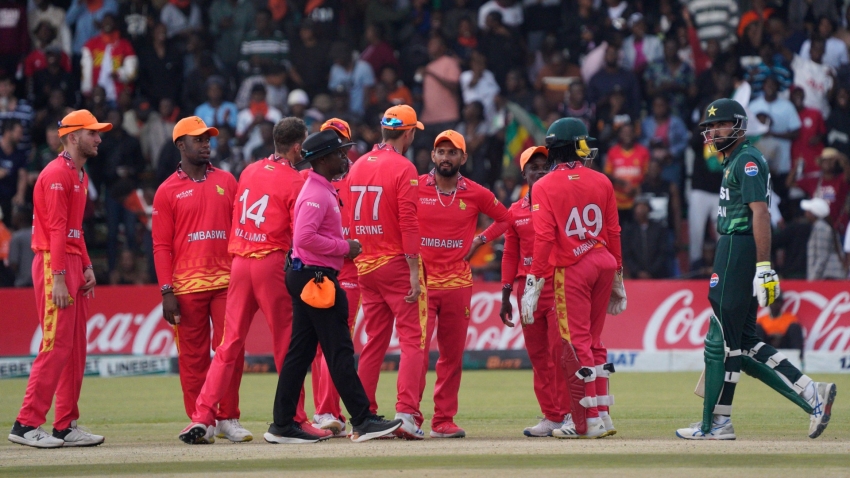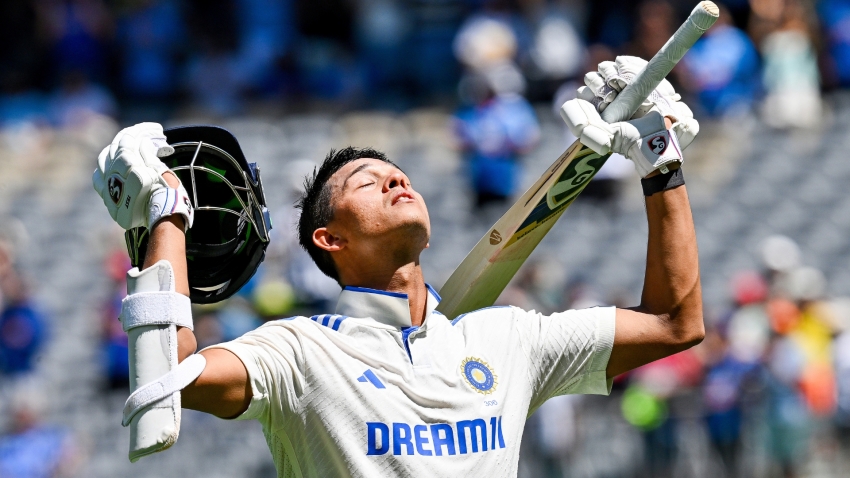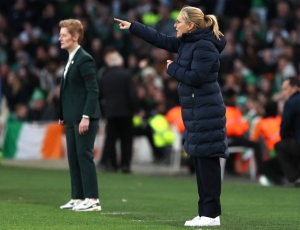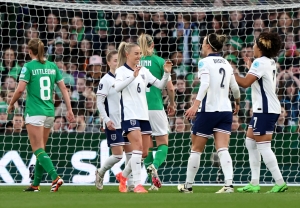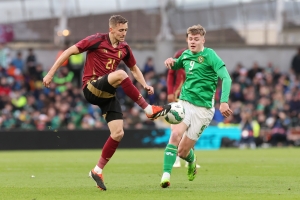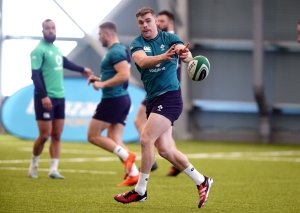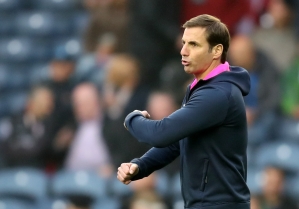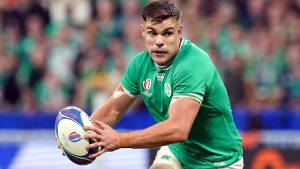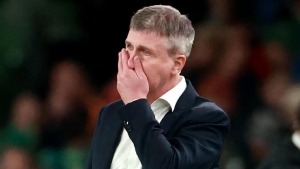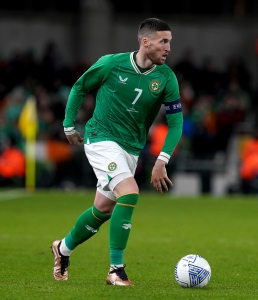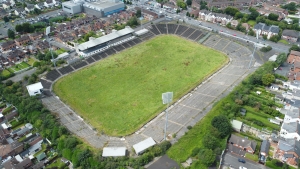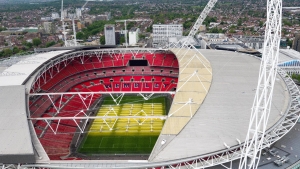Ireland have stuck with the starting XV narrowly beaten by England for Saturday’s Guinness Six Nations title decider against Scotland in Dublin.
Andy Farrell’s men will retain the championship crown by avoiding defeat or securing two losing bonus points against the Scots at the Aviva Stadium.
Calvin Nash has overcome the head knock which forced him off inside five minutes of the last-gasp 23-22 loss at Twickenham to retain his place on the right wing.
Garry Ringrose, who is yet to feature in this year’s championship following a shoulder issue, is named among the replacements.
Farrell’s bench shows a five-three split of forwards and backs after the six-two selection in south-west London backfired because of head injuries suffered by Nash and his replacement Ciaran Frawley.
Versatile back Frawley drops out of the 23, replaced by fly-half Harry Byrne, while lock Iain Henderson makes way to accommodate the returning Ringrose.
Although Ireland’s pursuit of successive Grand Slams was ruined last weekend, they remain in a strong position at the top of the championship table, having racked up four bonus points and a vastly-superior points difference on each of their rivals.
A defeat without any bonus points could also be sufficient for the title, but would be dependent on the result of England’s trip to France in the final match of ‘Super Saturday’.
Gregor Townsend’s Scots are also mathematically still in the mix. However, following a shock loss to Italy, securing the Triple Crown looks to be the extent of their realistic ambitions.
Leinster trio Andrew Porter, Dan Sheehan and Tadhg Furlong once again pack down in Ireland’s front row, ahead of locks Joe McCarthy and Tadhg Beirne.
Captain Peter O’Mahony retains the blindside flanker role, despite his costly second-half yellow card against England and strong competition from Ryan Baird, with Josh van der Flier at openside and Caelan Doris lining up at number eight.
Jamison Gibson-Park and Jack Crowley continue as the half-back pairing, while Bundee Aki partners Robbie Henshaw in midfield.
Left wing James Lowe, who claimed Ireland’s two tries at Twickenham, and full-back Hugo Keenan complete the starting line-up.
Ireland have won 13 of the last 14 meetings with Scotland, including nine in a row following a decisive 36-14 pool-stage success at last year’s Rugby World Cup in France.
Ronan Kelleher, Cian Healy, Finlay Bealham, Baird, Jack Conan and Conor Murray join Byrne and Ringrose on the bench.
Ireland team: H Keenan (Leinster); C Nash (Munster), R Henshaw (Leinster), B Aki (Connacht), J Lowe (Leinster); J Crowley (Munster), J Gibson-Park (Leinster); A Porter (Leinster), D Sheehan (Leinster), T Furlong (Leinster), J McCarthy (Leinster), T Beirne (Munster), P O’Mahony (Munster, capt), J van der Flier (Leinster), C Doris (Leinster).
Replacements: R Kelleher (Leinster), C Healy (Leinster), F Bealham (Connacht), R Baird (Leinster), J Conan (Leinster), C Murray (Munster), H Byrne (Leinster), G Ringrose (Leinster).


